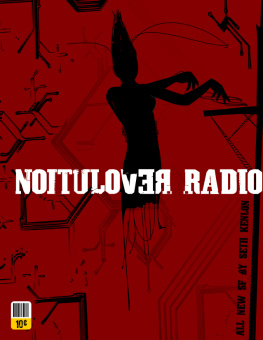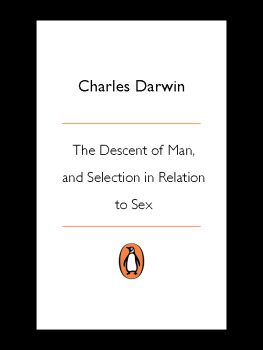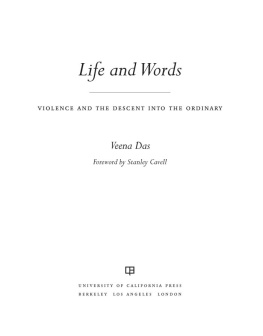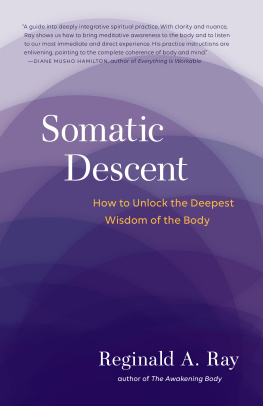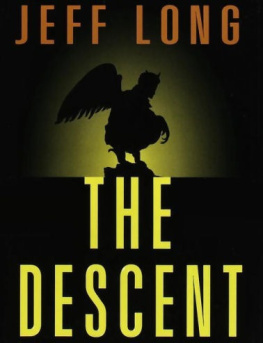Kenlon - The Descent of Perfection
Here you can read online Kenlon - The Descent of Perfection full text of the book (entire story) in english for free. Download pdf and epub, get meaning, cover and reviews about this ebook. year: 2012, genre: Prose. Description of the work, (preface) as well as reviews are available. Best literature library LitArk.com created for fans of good reading and offers a wide selection of genres:
Romance novel
Science fiction
Adventure
Detective
Science
History
Home and family
Prose
Art
Politics
Computer
Non-fiction
Religion
Business
Children
Humor
Choose a favorite category and find really read worthwhile books. Enjoy immersion in the world of imagination, feel the emotions of the characters or learn something new for yourself, make an fascinating discovery.

The Descent of Perfection: summary, description and annotation
We offer to read an annotation, description, summary or preface (depends on what the author of the book "The Descent of Perfection" wrote himself). If you haven't found the necessary information about the book — write in the comments, we will try to find it.
The Descent of Perfection — read online for free the complete book (whole text) full work
Below is the text of the book, divided by pages. System saving the place of the last page read, allows you to conveniently read the book "The Descent of Perfection" online for free, without having to search again every time where you left off. Put a bookmark, and you can go to the page where you finished reading at any time.
Font size:
Interval:
Bookmark:
<>Copyright 2012
This work has been published under the Creative Commons BY-SA 3.0 License.
You are free: to Share (to copy, distribute and transmit thiswork), to Remix (to adapt this work), and to make commercial use ofthis work, as long as you attribute Seth Kenlon as original author(but not in any way that suggests that he endorses you or your use ofthe work), and Share Alike (if you alter, transform, or build uponthis work, you may distribute the resulting work only under the samelicense as this one).
For more information on Creative Commons, see http://creativecommons.org/licenses/by-sa/3.0/
ISBN 978-0-9847842-3-3
In a land far away, back when the earth was still flat, there was a kingdom full of hills in the north of the world's central continent. The most northern reaches of this kindom, where there were more hills and fewer cities, was a popular region among monks and other holy men and women of the local religion. The north provided some solitude, much natural beauty, and a healthy separation from the politics of the south, where the Queen's palace and city were located.
Aran Mylo [1] was a monk, more or less. "More or less" because Aran Mylo was a woman but not a nun, since nuns had not yet been permitted to form Orders of their own. That would not happen for another one-hundred seasons, after the great druid revolt.
A dirt path crossed not far from her cottage's doorstep but it was seldom used. Border patrols passed by on occasion but the men on patrol rode quickly and never cared to stop at the home of a simple monk. To the right of the cottage (as one faced the front door) was Aran Mylo's garden of vegetables and herbs. There were no flowers unless they could be used as food or medicine; Aran Mylo preferred everything in and around the cottage to serve a purpose. Otherwise, what was the use in having it around?
Aran Mylo, even in the privacy of her one-room cottage, dressed in the robes of a familiar order of monks. Precisely, she dressed in the robes of an Alchemist, for she was a scientist and a priest -- an oxymoronic combination that was long ago known as a "wizard", or in her own language, "Dyn-Alys".
The term "Dyn-Alys" actually encompassed all three terms by which Aran Mylo might be known in any modern language; wizard, alchemist, monk. The prefix "Dyn" historically referred to "God", although in modern tongues of the region it has been reduced to a generic, tepid term indicating anything mysterious or super-natural.
But in her own time, Aran Mylo and others like her were God's wizards, alchemists, monks. And they were proud of it, and took it seriously. They alone preserved the memory of God, which, as they knew, was doomed to fade in Time, as all sentient minds fell into their long, eternal sleep of Godlessness.
Aran Mylo was, perhaps in anticipation of her race's descent into the absence of God, was especially interested in health and nutrition, for this was something that many monks neglected in their asceticism. Aran Mylo saw no need to eat only bread and water, as many monks did, when one could grow one's own food and live quite healthily off of Mother Nature's food. There was a scripture in the Alys Tome: "As a mother nurtures her baby, so the Earth nurtures her children, and so the woman of any species knew it was vital to do for her race."
Aran Mylo was short for her age but not for her race. Her skin was dark for the region where she lived, but again not for her race. Her ears came to subtle points, more noticeable on her with her head shaved. Aran Mylo felt that hair was a source of unnecessary and dangerous vanity - not to mention a breeding ground for decidedly unhealthy lice.
Although her holy calling did not demand it, she was well built, because she often exercised, especially in the winter months, and of course she maintained a healthy diet. The Alys Tome said of this: "As a father feeds his children with Wisdom and support, so God feeds creation."
Upon the shelves in her cottage, there were books and notes. Aran Mylo read through all of the philosophical essays and books that she could find, having copied them all dutifully by hand from whatever library that housed them. She read through her own religion's Holy Scriptures, like the Alys Tome, and she'd memorized the best verses that spoke particularly strongly to her.
She even dared write some of her own essays. And among some alchemists, her essays were transcribed and studied. It was a small community, and one not given to sharing knowledge too freely, so it was an honour to be circulated at all.
Upon everything that she read, including her own work, she kept notes. And on those notes, she sometimes kept notes. Higher learning, she had found in the past century of her life, was a continual, long, and deliberate process.
It hadn't been so long ago, really, that she'd been called to her Order by God itself, through the burning text of a Holy Book.
Before she had learnt to read.
Aran Mylo, who had grown up with a number of brothers and sisters and the usual assortment of neigbours, now lived alone but she didn't mind it. Other monks would have distracted her from her work - and would never have approved of a woman in the robes of a monk. She was neither a revolutionary nor a revisionist and did not care to debate whether a woman belonged in Orders of religion or not. In fact she often felt that it was a distinctly masculine trait to even bother to argue the point. A true woman didn't care about policy or politics; a true woman was naturally an anarchist, minding to her own affairs and doing nothing but caring for those around her. It was the men of the world that tried to enforce their rules and laws upon others. And she wasn't interested in it even enough to tell them so.
Thus, she kept to herself in peace and appreciated solitude with only an occasional visitor. The weather never did get very hot up in the North, so Aran Mylo never wore anything else besides her robes.
It was sometime in July that Aran Mylo sat alone at a crudely built wooden table, which was set by the open window near the front door so that the cool breeze could reach her. Before her, she had some crushed leaves of Echinacea and Boneset. In her lap, she had two bags. Into one, she was placing the Echinacea for tea (for the common cold), and into the other she was placing the Boneset (for Bronchitis or fever symptoms). Both of these two herbs were -- and indeed still are -- widely considered required medicine in anticipation of an oncoming winter. She'd grown and harvested them this year as she did every year.
On the left corner of the table, near Aran Mylo's hand, was paper upon which she was recording the amount of both she had already packed. The breeze was far too beautiful for her to ignore, no matter how hard she tried, so she quickly finished her work. She recorded the total number of bags that she'd packed, estimated how many she could give away to travelers who might pass by, how many she would have to give as taxes when the local collector ambled by a month late, as he always did, and how many she would keep for herself and nearby inhabitants of the land when they came by for her advice on health, as they always did.
The tax collector was a local man whose job it was to collect all taxes and give them to the postal worker. The tax collector was lazy, however, and never got around to collecting until a soldier from the capitol came to investigate the situation. The collector then began his rounds, which took a month. The postal worker, who almost never worked -- except when taxes were due, then sent all of the taxes down to the capitol with a departing group of soldiers. Since they were departing one job and not at all eager to arrive at the next, they usually took their time in actually reaching the capitol. Aran Mylo theorized that the entire region was really one year behind in taxes because the Queen probably thought that the taxes she finally received was for that year's collection when in reality they were for the last year's.
Font size:
Interval:
Bookmark:
Similar books «The Descent of Perfection»
Look at similar books to The Descent of Perfection. We have selected literature similar in name and meaning in the hope of providing readers with more options to find new, interesting, not yet read works.
Discussion, reviews of the book The Descent of Perfection and just readers' own opinions. Leave your comments, write what you think about the work, its meaning or the main characters. Specify what exactly you liked and what you didn't like, and why you think so.

